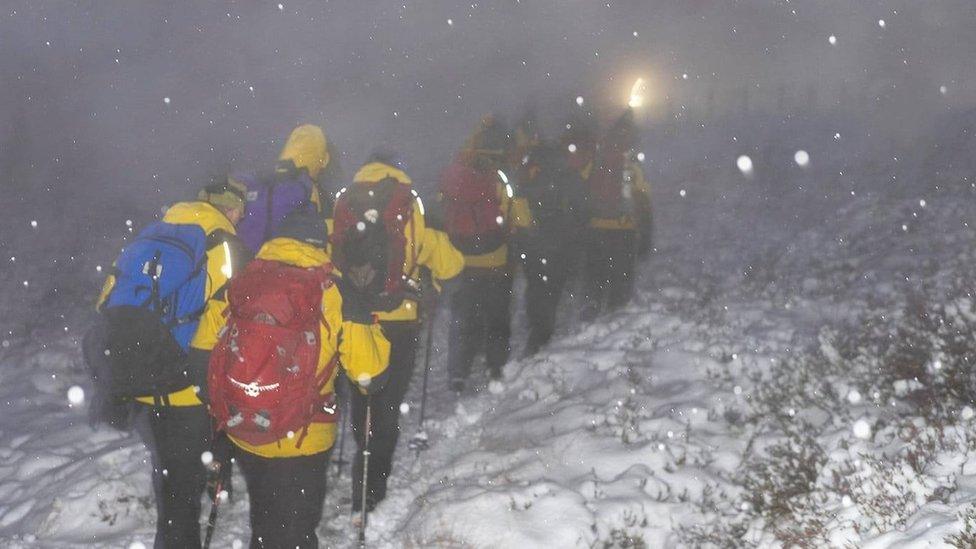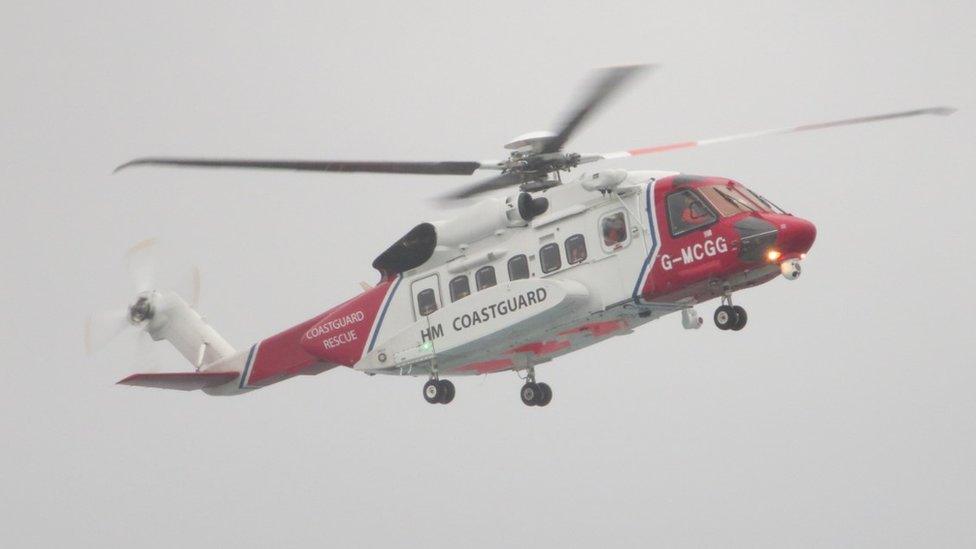Rescue team support concerns raised at Holyrood
- Published

Cairngorm is one of the four teams that has raised concerns about helicopter support
Concerns over support for Scotland's mountain rescue teams (MRTs) have been raised at Holyrood.
Four teams claimed last week that the Maritime and Coastguard Agency was unwilling to assist with recovering bodies and helping to move volunteers.
Labour MSP Rhoda Grant asked at First Minister's Questions what support the Scottish government provides to MRTs.
First Minister Nicola Sturgeon said more than £300,000 of annual grant funding was given to the service.
She said it was the only government in the UK to fund mountain rescue in this way.
Recovery of bodies
During FMQs, Ms Grant said mountain rescue volunteers put their own lives at risk to save others, but often felt they were expendable.
She called for other agencies, including Police Scotland, to support and protect mountain rescue teams.
Ms Sturgeon praised the role of MRTs, and said the government was aware of the concerns raised last week by the four teams.
She added: "Scottish government officials have previously raised this issue with the coastguard agency following earlier correspondence with the teams."

The coastguard runs the UK's helicopter search and rescue service
The operation of the Maritime and Coastguard Agency's helicopter search and rescue service is overseen by the UK government.
The coastguard took over the helicopter role from the RAF and Royal Navy. A private company provides the crews and helicopters.
Last week, Cairngorm, Lochaber, Glencoe and Tayside raised their concerns about the service.
The rescue teams expressed frustration after having to undertake long, technical and difficult recoveries of bodies, following walking and climbing accidents, unassisted.
In a joint statement, the four rescue teams said: "The inescapable conclusion to this is that either the aircraft and crews are too thinly spread to cover requirements or that the agencies do not view the welfare of the volunteer teams in the same way as they appreciate that of the pilots and crew."
A spokesperson for the Maritime and Coastguard Agency said last week: "While the recovery of bodies positively confirmed as deceased is not strictly speaking a search and rescue mission, it is a mission HM Coastguard may support under some circumstances.
"Search and rescue helicopters should not routinely be required to clear the hill as fundamentally, a mountain rescue team must be able to operate independently and without helicopter support as conditions on the day might mean that our helicopters are simply unable to reach a team on the hill."
- Published2 November 2018
